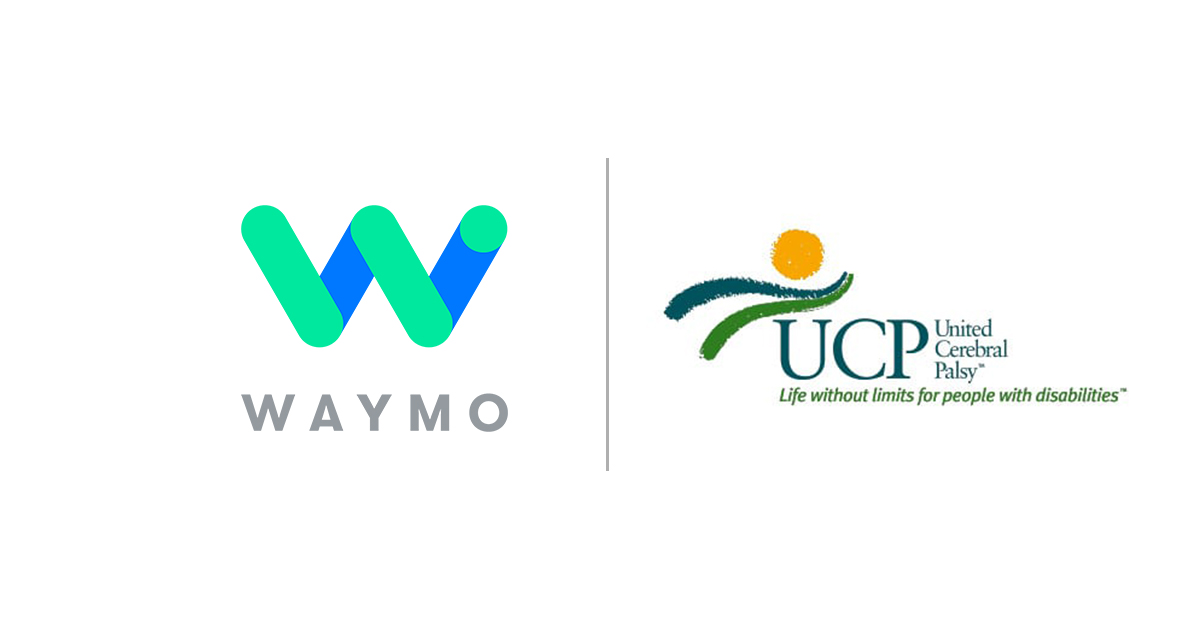Waymo Partners with United Cerebral Palsy to Advance Support for Latinx People with Disabilities
September 20, 2022
Partnered with United Cerebral Palsy

Waymo and United Cerebral Palsy (UCP) are partnering to host a major conference dedicated to supporting Latinx people with disabilities, the first known conference of its kind.
The two-day virtual event will be held during Hispanic and Latin Heritage Month, on September 21 and 22, from noon to 4 p.m. ET each day. UCP is a leading advocate for all people with disabilities, from intellectual and physical disabilities to seeing and hearing impairments and mental illness. Waymo is an autonomous driving technology company with a mission to make it safe and easy for people and goods to get where they are going.
James Garcia, the communications coordinator for UCP and one of the organization’s leading advocates for Latinx people with disabilities, said the goal of the conference is to address barriers, raise awareness, and showcase opportunities around supporting people with disabilities within the growing Latinx community in the United States. There are around 62 million Latinx people living in the U.S., a portion of whom – like the general population – also have disabilities.
“The issues we at UCP address impact all people with disabilities, but impact Latinos differently,” Garcia said. “The goal is to tap into the Latino community and engage them in conversations and engage the non-Latino community in issues they may not be aware of.”
The issues we at UCP address impact all people with disabilities, but impact Latinos differently. The goal is to tap into the Latino community and engage them in conversations and engage the non-Latino community in issues they may not be aware of.
Latinx people account for about 50% of the nation’s population growth, with immigrants accounting a share of that growth, yet organizations serving people with disabilities may not have grown their outreach to the Latinx community at the same pace, Garcia said.
“There are organizations all over the country that provide services for the disability community, but there is a real lag with organizations in terms of how they are tapping in to serve the Latino community,” Garcia explained. “As a result, there are barriers that keep Latinos with disabilities from getting the kind of services they need.”
Garcia said barriers may relate to language differences, a lack of exposure to opportunities, feeling intimidated by the process or bureaucracy involved in accessing services from organizations or agencies, or simply being low-income.
“People who are low income do not want to go downtown to the fancy agency because they don’t feel comfortable in the environment, and if there is not anyone to make them feel culturally welcome, they might not feel a sense of belonging,” Garcia explained.
Another potential barrier Latinx people with disabilities may face is accessing services related to mobility. Garcia gave the example of a Latinx person with cerebral palsy who does not have a car.
“If they needed to get from point A to point B, such as a UCP affiliate, that would not be an easy task,” Garcia explained, adding that the person might need to make a two-hour trip on public transportation, and then still have to make the journey home. “That kind of additional time is a strain on their schedules and their ability to get off work.”
Garcia said autonomously driven technology like Waymo’s, which is designed to obey traffic laws and respect other road users, could offer an additional, safe mobility option to connect people who have disabilities with service providers.
“When that day comes where a low-income person without a car, or who doesn’t drive, needs to get downtown and the agency or the state has contracted with a fleet of accessible autonomous vehicles that comes to their door and take them to get the services they need, it could have a revolutionary impact on these communities,” Garcia explained.
When that day comes where a low-income person without a car, or who doesn’t drive, needs to get downtown and the agency or the state has contracted with a fleet of accessible autonomous vehicles that comes to their door and take them to get the services they need, it could have a revolutionary impact on these communities.
The main benefit autonomous driving technology could offer, Garcia emphasized, relates to access and freedom of mobility.
“Mobility means freedom physically, culturally, intellectually. When people can’t leave their homes, other things happen to them,” Garcia said, adding that autonomous driving technology could help people with disabilities get out of their homes independently and connect with others. “It is coming down the road, and when it does, it will be nothing less than revolutionary.”
Garcia urged anyone interested, whether they are people in the Latinx community who feel existing services are not reaching them, or people from the thousands of agencies in the country serving people with disabilities, to register for the UCP Conference on Latinos With Disabilities.
“In the same way that you wouldn’t run an organization that ignored women, who are 50% of the population, you shouldn’t run an organization that ignores what is 20% of the population,” Garcia said, adding that engaging the Latinx community is more important now than ever. “They live among us and they need the services just as much as anyone else.”
Sign Up
Join us in the most important conversations about how autonomous driving technology may shape the future of safety, mobility, community, and society.


